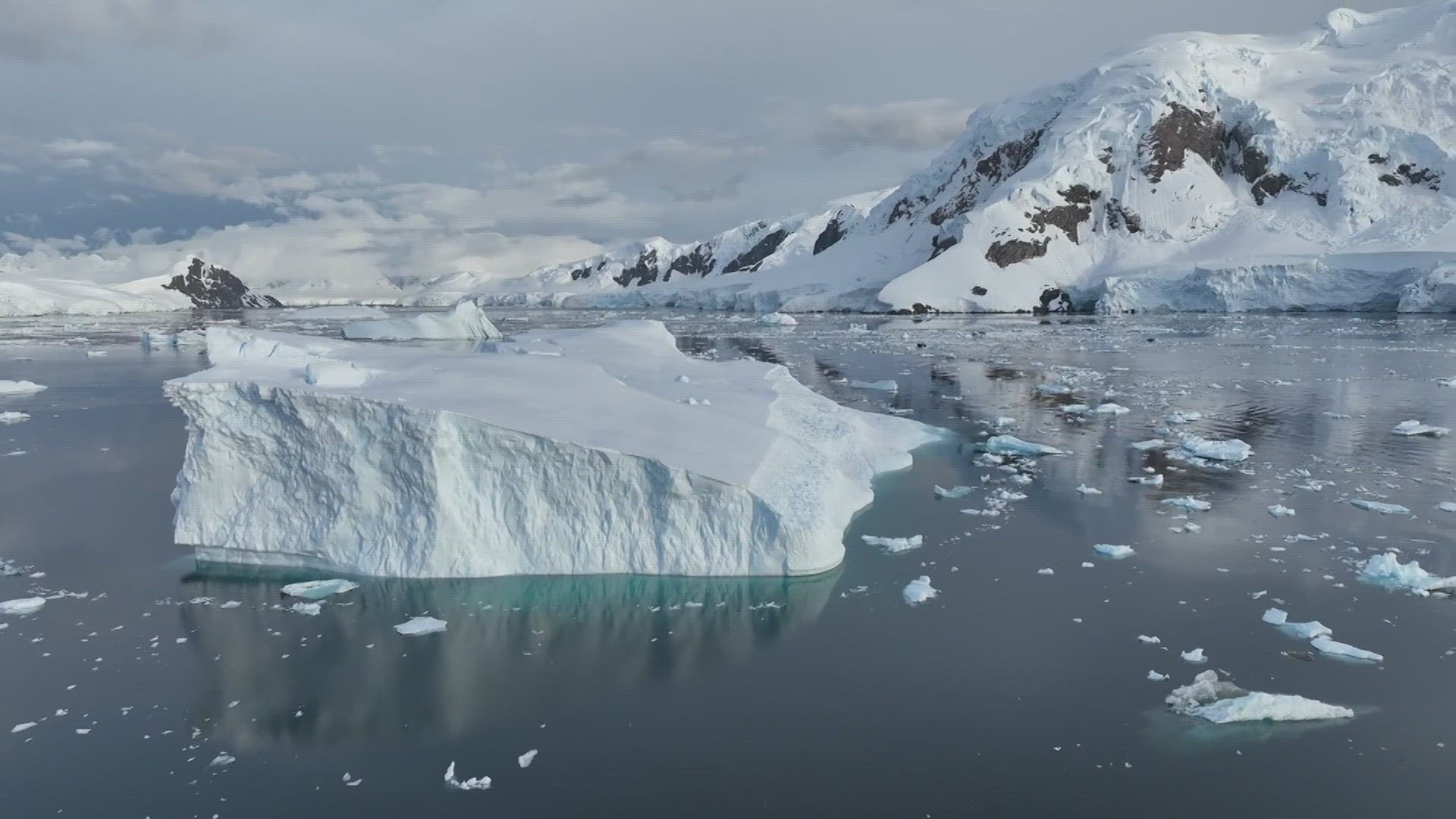BOULDER, Colo. — The waters around Antarctica are home to hundreds of species like penguins and whales. But, according to a new study out of CU Boulder, they could be in big trouble.
Nicole Lovenduski is the interim director of CU Boulder's Institute of Arctic and Alpine Research and co-author of the study on Antarctica's coastal waters and what is happening to them.
"We conducted the study to further investigate what happens very close to the shoreline where most of these organisms live," she said. "We found that the acidity of the waters in Coastal Antarctica is likely to double by the end of the century."
Ocean acidification occurs when carbon dioxide is released into the atmosphere from the burning of fossil fuels. About a third of that CO2 gets absorbed by the ocean. Once dissolved, the gas combines with the water and forms something called carbonic acid.
The more the CO2, the more acidic the water.
Studies have shown that phytoplankton, the base of the food chain that supports marine life in the area, grow slower or even die in waters that are too acidic.
When the phytoplankton die the food supply for penguins and whales dies off too.
"Phytoplankton are the food source for everything down there," said Lovenduski.
The study projects that by the year 2100, the waters off Coastal Antarctica could see a 100% increase in acidity compared to 1990's levels.
"We're headed off a cliff here," Lovenduski said. "Not just for ocean acidification, but for global warming and for climate change in general."
Lovenduski stresses we can stay away from that cliff if we cut CO2 emissions quickly and drastically.
"The answer is pretty simple," she said. "We need to stop emitting fossil fuels and we need to switch to renewable sources of energy."
More from Keely Chalmers:
SUGGESTED VIDEOS: Colorado Climate

